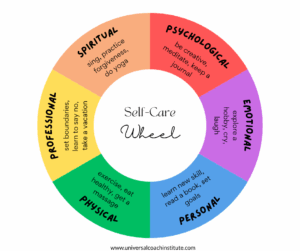
In this series, we’re exploring ICF’s new code of ethics. It was updated and went live as of April 1, 2025. This is a process that ICF does on a regular basis. Three years after the new Code of Ethics is live, they will start the process to review it and update it again.
This time around, during 2024, I had the privilege of being part of the Leadership Team for the Ethics Review Team. It started with a steering committee; they did surveys and focus groups for input from many different stakeholders in advance. That input was then compiled and shared with the Ethics Review Team. There were three of us that were leaders, and each of us had a sub-team, a smaller group of people. Each of the three groups went through a third of the standards and reviewed and discussed and made recommendations.
When the work of the review team was complete, the Code of Ethics was presented to the steering committee, and the steering committee then took what they felt was right and good and appropriate for review and approval. Then it was presented to the different boards in the ICF ecosystem for review and approval. There were a lot of changes!
In the 2020 version, the sections in the Code of Ethics included the Introduction, Key Definitions, ICF Core Values and Ethical Principles, the Ethical Standards themselves, and a pledge. In 2025, the sections are now Purpose, ICF Core Values and Ethical Principles, Commitments for All within the ICF Ecosystem, Ethical Standards for ICF Professionals, the Pledge of Ethics, and now an Appendix with Key Definitions of terms used in the code and a Glossary of other terms.
A highlight of the specific changes:
· In 2020 the introduction explained the code itself. In 2025, the purpose replaces the introduction and explains the reasons for the code and the application of it.
· In 2020, there were 13 definitions, and those definitions were in Section 2. In 2025, there are 24 definitions plus 12 more terms in the glossary, and those are in the appendix.
· In 2020, the code referenced the core values and ethical principles. In 2025, it now includes the full text for the core values and the principles.
· There’s a brand-new section in 2025 called Commitments for All within the ICF Ecosystem. What that means to us is it now encompasses staff and volunteers in addition to members and credential holders.
· In 2020, the 28 standards were in five sections organized by area of responsibility. In 2025, the 24 standards are in five sections organized by category.
Now, take some time and explore exactly what the new Code of Ethics is telling us and what to take away from it. Very specifically, in the Code of Ethics under Purpose, it talks about the Code of Ethics being there to uphold the integrity of ICF and the coaching profession. It is a resource for all of us to guide reflection and decision making. It is used by the Internal Review Board, the Ethics Review Committee, to adjudicate and preserve the integrity of the Code of Ethics and the profession. Of course, as a coach training school, it is a basis for our education.
In the section with Core Values and Ethical Principles, the full text is now included. ICF has four core values. Each of the core values has multiple ethical principles associated with it. When you actually look at the Code of Ethics now, you’ll see two pages dedicated to the Core Values and Ethical Principles.
· The Core Value of Professionalism is defined as a commitment to a coaching mindset and professional quality that encompass responsibility, respect, integrity, competence, and excellence. There are a number of ethical principles with the Core Value, and it is important to read each carefully for a complete understanding.
· The Core Value of Collaboration is defined as a commitment to develop social connection and community building.
· The Core Value of Humanity is a commitment to being humane, kind, compassionate, and respectful towards others.
· The Core Value of Equity is a commitment to using a coaching mindset to explore and understand the needs of others so that I can practice equitable processes at all times that create equality for all.
There are a number of Ethical Principles with each Core Value, and it is important to read carefully for a complete understanding.
When you actually look at the Code of Ethics now, you’ll see two pages dedicated to the Core Values and Ethical Principles.
· The Core Value of Professionalism is defined as a commitment to a coaching mindset and professional quality that encompass responsibility, respect, integrity, competence, and excellence. There are a number of ethical principles with the Core Value, and it is important to read each carefully for a complete understanding.
· The Core Value of Collaboration is defined as a commitment to develop social connection and community building.
· The Core Value of Humanity is a commitment to being humane, kind, compassionate, and respectful towards others.
· The Core Value of Equity is a commitment to using a coaching mindset to explore and understand the needs of others so that I can practice equitable processes at all times that create equality for all.
There are a number of Ethical Principles with each Core Value, and it is important to read carefully for a complete understanding.
In the Code of Ethics, it explains that these Core Values truly are part of the Code of Ethics. They’re a foundation for understanding the Code of Ethics and processing them.
Commitments for All within the ICF Ecosystem is new. It is incredibly significant for us and is a big change in how the document is organized. The language here is fabulous It very specifically tells us:
Mindfully perform our duties with integrity and accountability by thinking globally, being courageous in our thoughts, actions, and speech, being aware of our impact, and bearing the responsibility of any consequences.
• Commit to excellence through continued personal, professional, and ethical development.
• Remain alert to cultural filters and demonstrate respect for cultures different from our own through open conversations about cross-cultural and multicultural differences.
• Maintain awareness of relationships and how they are influenced by factors including biases, power dynamics, and forms of systemic oppression, and actively address these factors through continuing education and open conversations.
• Cultivate our ethical growth and maturity through continuous self-reflection and increased self-awareness. If an ethical dilemma arises, we will pursue assistance where needed to resolve the matter.
• Respectfully attempt to communicate our concerns with others if we become aware of unethical conduct by them, and if necessary, seek ethical guidance for next steps.
• Communicate with those who need to be informed of the ethical responsibilities established by this Code by providing access to this Code of Ethics.
• Accept that behaving ethically means going beyond what is written in the Code of Ethics.
In the next blog, we’ll dive into the specific standards that are in the new Code of Ethics. So come back and learn more. In the meantime, visit www.Coach-123.com and www.CoachCert.com.



